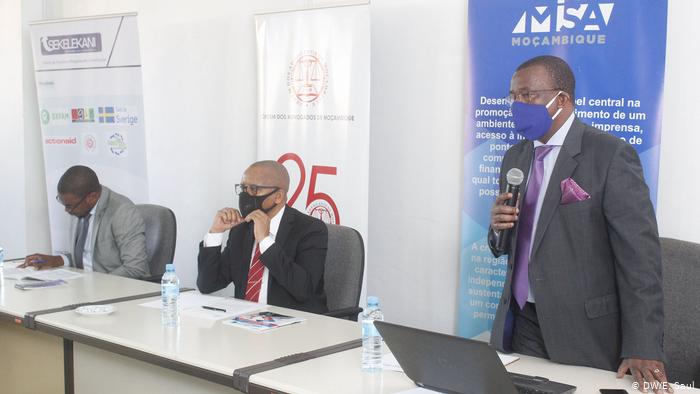Mozambique: India provides $1M in medicines, prosthetic limbs
Mozambique: Culture of secrecy frustrating freedom of information

Photo: DW
Mozambican civil society organisations have warned that a pervasive culture of secrecy in the Mozambican state is frustrating compliance with the law on freedom of information.
The law was passed six years ago, with the support of all three political forces in the Mozambican parliament, the Assembly of the Republic, but state bodies are dragging their feet in implementing the law.
The Centre for Communication Studies and Research (Sekelekani), the Mozambican chapter of the regional press freedom body MISA (Media Institute of Southern Africa), the Mozambique Bar Association (OAM), and the Countryside Observatory (OMR) monitored compliance with the law, and found that in many cases state bodies simply ignored requests for information.
In a report issued on Wednesday, these civil society organisations said they had sent requests for information of public interest to ten public and private organisations, and only one, the government’s Agricultural Promotion Fund (FFA) responded within the 21 day deadline established by the law. Two others replied, but beyond the deadline. The other seven did not answer at all. Among the bodies that did not reply was the Assembly of the Republic – the Assembly had passed the law, but was now ignoring it.
This was in 2017. Faced with the refusal of the majority of the institutions approached to obey the law, the civil society bodies turned to the Administrative Tribunal (TA), and requested it to order the institutions to reply.
Practically all the institutions still refused, claiming that the requests were “procedurally irregular” – and the section of the TA dealing with the matter supported them. So, in 2018, the civil bodies appealed against the perverse rulings of the TA section to the plenary of the TA. Two years have passed since that appeal, and the TA has still not taken any decision.
This, the report says, amounts to “a true denial of the exercise of a fundamental right enshrined in the Mozambican constitution”.
“Faced with these obvious signs of ignorance of the law and skewed interpretations of its goal and scope, associated with a strong culture of secrecy about matters of general interest”, the civil society bodies have decided to organise a national conference on the Right to Information.
Reacting on Wednesday to the report, Assistant Attorney-General Taibo Mucobora admitted that public officials and institutions are breaking the law when they cite “state secrecy” as a reason to deny access to information of public interest.
Cited in Thursday’s issue of the independent newssheet “Mediafax”, Mucobora said the failure to implement the law on freedom of information and the difficulties created by state officials were “a matter of concern”.
“It is worrying that when information is requested, there is no reply within the deadline laid down in the law”, he said. This was something that should concern the Public Prosecutor’s Office, as the defender of legality.












Leave a Reply
Be the First to Comment!
You must be logged in to post a comment.
You must be logged in to post a comment.